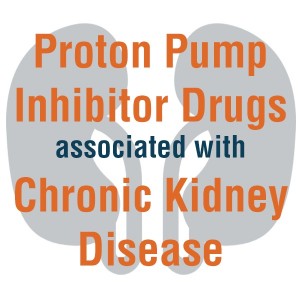Side Effects of Using PPIs Long Term
Because the stomach is where food is broken down into nutrients to be digested, reducing the level of acid in the stomach also reduces the effectiveness of the digestive process. As a result, some nutrients fail to be broken down into a form where they can be absorbed by the body.
-
Deficiencies
Long-term PPI use has been associated with deficiencies in levels of iron, magnesium and B12. Lack of iron causes anemia and can result in dizziness or fainting. Magnesium deficiency can cause muscle weakness and cramping, while a lack of B12 is associated with anemia.
-
Kidney Failure/Disease
Long-term PPI use has been linked to kidney disease in some users. In 2014, the FDA mandated a warning for PPI medications regarding the link between PPIs & interstitial nephritis, a kidney disorder that causes inflammation between the kidney tubules.
-
Bad Drug Reactions
PPIs can reduce the efficacy of the anticoagulant drug - clopidogrel, which is used to inhibit blood clots that cause heart attacks & strokes. PPIs also affects the cancer drug, methotrexate, by interfering with the elimination of the drug from the body.
-
Infections & Pneumonia
PPIs are associated with the bacterial infection clostridium difficile, which can cause diarrhea and inflammation of the colon. They are also associated with pneumonia, which can be potentially fatal.
-
Osteoporosis
PPIs can inhibit the absorption of calcium, which can lead to osteoporosis and an increased risk of fractures, particularly of the hip, wrist and spine. The FDA issued a warning about the risks of fractures associated with PPI.
PPI Lawsuits
Despite the risks of long-term use, PPIs are heavily prescribed without limitation on the duration of consumption, and are overprescribed. A study of a VA clinic in Ann Arbor, Michigan showed that two-thirds of the prescriptions of PPI drugs were not for conditions that justified use of the drugs.
Taking PPI drugs creates a high chance of dependency. Discontinuing use of the drugs, especially after long-term use, causes the acid production in the stomach to rebound to levels even higher than before the drugs were taken.
In many cases, gastric conditions that could be treated with diet and lifestyle changes have been treated with PPIs instead, meaning less hazardous solutions are ignored.





